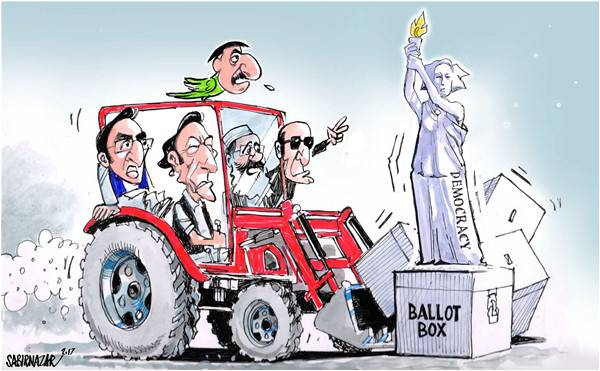
Higher education
Sir,
Countries such as Japan, China, Malaysia, Singapore, Indonesia, America, Australia, and England have become successful because of education. The online infrastructure of these nations has prompted countries like Pakistan to improve education information technologies and standards.
The Higher Education Commission (HEC), formerly the University Grants Commission, has created links between universities. Former HEC chairman Dr Atta-ur-Rahman’s tenure is considered a golden era when the spectrum of research industries and capacity building of universities and degree-awarding institutes took place. He set the SOPs of the HEC and made it a central regulatory body for higher education and introduced the ranking system for the graduate and post-graduate level.
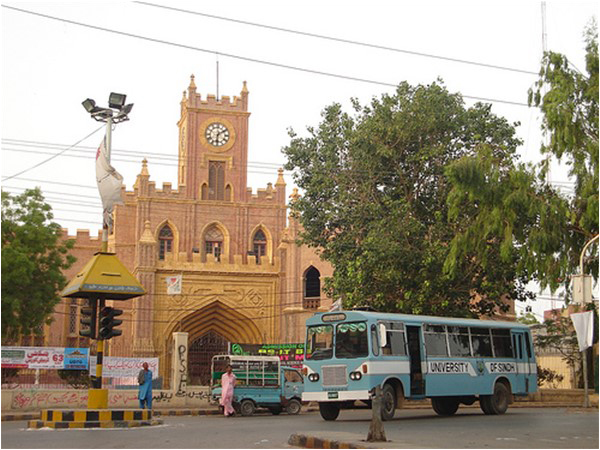
Despite all this, higher education outreach is still a far cry for our rural population as there is a great dearth of institutes in the countryside. Even existing institutes there are not imparting modern education. They use obsolete teaching methods. Even the degree colleges fall short.
As a result, a number of graduates are produced in the rural areas but their skills are not the same as those of graduates from urban areas.
There are several reasons for this: a lack of modern laboratories, ICT-based facilities, highly qualified faculty and trained administrative and managerial staff. The rural-urban divide goes down to the tehsil level. In Sindh for example, copy culture has plagued the roots of our degree-level education. College graduates are not able to clear the entry tests of universities to pursue their Master’s studies.
In Sindh and other provinces, only degree colleges for science students offer regular admissions in F.Sc pre-Medical and pre-Engineering groups. Only limited admissions are offered to Arts or Humanities students at the tehsil level. Affiliated colleges also offer regular admissions to the B.Sc and B.A. programmes but apart from the colleges in big cities, the attendance in rural areas is low and the classes are not run properly.
Students who do not get guidance and career counseling choose programmes either because of what their parents want or are forced to choose on Engineering and Medical Groups because they do not know that there are other fields such as Commerce, Computer Science and Fine Arts for Intermediate Students. The main reason for these choices is that there are not enough colleges at the tehsil or district levels to offer Commerce, Computer Science and Fine Arts in Sindh.
Education in Punjab is considered better as every college offers admissions in pre-Engineering, pre-Medical, Commerce, Fine Arts and Computer Science. Even their degree classes are standardized. The education in Khyber-Pakhtunkhwa has improved tremendously under the current regime as they have focused on secondary and college education. Even Balochistan has improved but it has only eight higher education DAI institutions.
Urbanization and population increases warrant more institutes in urban and rural areas so that people can go up to the graduate and post-graduate levels in their hometowns and head to the bigger cities for research-based education such as MPhils, PhDs, M.E., D.E.
If we look at higher education at the division level in Sindh, we see that Larkana division has one medical university, one engineering college, one general university campus of Sindh University. A new campus for SALU has been set up at Shahdadkot, Shikarpur. There are about 6,192,380 people in this division. There is no higher education institute at the district level, especially in Kashmore and Jacobabad.
It is ironic that the provisional results of the Census 2017 tells us that Kashmore has a population of one million people, yet there is only one degree college in Kandhkot that is supposed to cater to the people from three tehsils. Fortunately, a new degree college has recently opened at Karampur but it will take a year to function properly.
Punjab comes out on top with the highest number of universities and degree-awarding institutes (60) both in the public and private sectors, followed by Sindh with 55, KP with 35 and eight in Balochistan. Additionally, there are seven universities in Azad Jammu & Kashmir out of which one (Al-Khair University) has been banned over degree verification. There are 20 universities in Islamabad.
The HEC website shows that there are a total of 186 universities for Pakistan’s 207 million people. Most of them are in the big cities. Karachi has 41, Lahore 34, Islamabad 20.
This divide is further aggravated when the need arises for professional accountancy institutes such as the Institute of Chartered Accountants of Pakistan (ICAP) Karachi and Institute of Management Accountants of Pakistan (ICMAP) Karachi. They cater only to an urban population. The HEC should speed up proposed institutions so that the dropout rate is minimized after the intermediate level. District Kashmore, for example, immediately requires two degree colleges for boys and girls and a university campus to cater to the needs of its population of 1,089,169 and the bordering districts of Punjab’s Rajanpur and Balochistan’s Dera Bugti.
Abdul Rahman Malik,
Via email.
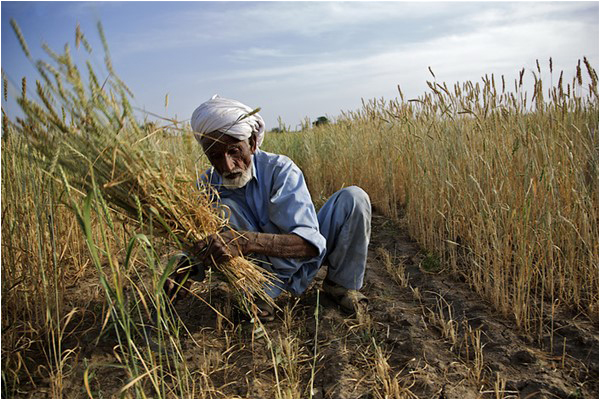
Food insecurity
Sir,
Food insecurity has been recognized as one of the causes of militancy. Pakistan is vulnerable to this threat. It is an agrarian economy but more than 90 million people in Pakistan are food insecure and the number may increase in the coming years.
According to the 2010 Agricultural census carried out by the Pakistan Bureau of Statistics, almost 60 percent of the country’s population lives in rural areas and earns a living from agricultural activities. Physical and economic access as well as poor health is a major constraint. The rate of growth of the population in Pakistan is much higher than that of other countries. It has led to an increased demand for housing which is why farmland is being converted into residential. The government of Pakistan should take steps to strengthen livelihoods and resources in this sector.
Kiran Fatima,
Islamabad.
Awaran schools
Sir,
Most of the people live in villages in Awaran but there are no schools for girls as a result of which 95% of them are illiterate. If anyone has the money and relatives in the cities they send their daughters there. The rest of the girls are left behind and can only assist their mothers by learning how to sew clothes in exchange for money which helps them to run their homes and educate their brothers. They are not honoured and preferred like other literate females.
It is my humble request to the authorities that they set up schools in villages of the district.
Haleef Kolwahi,
Awaran.
Kech pollution
Sir,
In Kech polluted water is making many people sick. In many parts of Balochistan people have long been demanding access to clean drinking water but no projects have been undertaken.
Radio Pakistan reported in June that the Balochistan government has approved the construction of numerous water supply schemes in district Kech worth over one hundred million rupees.
Nine water supply schemes in Killi Shore and Umer Kallan of district Harnai are nearly ready and cost Rs57 million rupees. I sincerely hope they solve the problem.
Gulsameen Baloch,
Kech.
Homeless citizens
Sir,
The population of Turbat is approximately 79,200 but many people there are poor. In 1998 a flood took place in Turbat and after that another flood came in 2005 as a result of bad planning by the engineering department. Many homes were destroyed. People have since struggled to rebuild their lives and there are many homeless people who live without proper shelter. I appeal to the authorities to help them.
Sumira Rafique,
Turbat.

Mercy on animals
Sir,
It is a saying of the Holy Prophet Muhammad (PBUH) that, “A good deed done to an animal is as meritorious as a good deed done to a human being, while an act of cruelty to an animal is as bad as an act of cruelty to a human being.” This should be required reading again and again for the people of the Land of the Pure, especially the supporters of the PML-N, who subject tigers and lions to cruelty during their election campaigns.
I write these lines with great pain and anguish while going through the national newspapers reporting the election rally of Ms. Maryam Safdar, the daughter of the former prime minister Nawaz Sharif. PML-N workers brought a young lion loaded onto a vehicle (Dawn August 31). The Lahore High Court had in clear words banned the exhibition of animals in public meetings. And then there is the Bengal tiger which was brought by PML-N workers during the 2013 campaign to a big election rally. The poor cat suffered exhaustion and dehydration.
In the US, the two main political parties, the Republicans and the Democrats, have the election symbols of the elephant and donkey but they never bring these animals out on the campaign trail. Mahatma Gandhi one said, “The greatness of a nation and its moral progress can be judged by the way its animals are treated.” So this is the greatness and moral progress of us that we subject animals to the worst kind of cruelty and drag them to public meetings in the heat, dust and humid conditions.
In all civilized countries, special rehabilitation centers are made for stray dogs, cats and other such animals where they are taken care of and many citizens can then come to adopt them. Exactly the opposite is happening in our country, despite the clear instructions and teachings of our beloved Prophet (PBUH). Here in Pakistan poor animals are kept hungry and thirsty for hours and hours in a crowd, just to attract people without giving a second thought to the misery of the creature. On top of that the law enforcement authorities remain silent to this maltreatment of animals rendering the law simply a piece of paper.
All animal-loving and law-abiding citizens of this country request and demand the government instruct the departments concerned to ensure that animals are not used in election campaigns.
Aamir Aqil,
Lahore.
BRT Karachi
Sir,
There was news that the people in the government who are planning the Green Line, which is federally funded, had designed part of it to pass by the Quaid-e-Azam’s mazaar. This Bus Rapid Transit project is part of a bigger plan in Karachi, with other lines that have been colour coded. Baba-e-Karachi Arif Hasan, if I may take the liberty of calling him that for all his work to improve, document and design the city, has been against this. He wrote that building any mass transit project on elevated structures was likely to spoil the view to these historic monuments and buildings and would lead to pollution. There were plans in the 1990s to do a similar thing but it was shot down. Now the plans have resurfaced and at risk is a particularly beautiful stretch on MA Jinnah Road.
I fail to understand why elevated bus lines are needed in Karachi when the width of roads such as MA Jinnah can accommodate BRT lines. Why do we see development in terms of concrete rather than preserving historic beauty? Has Karachi’s heritage not been damaged enough by the builders mafia that the government itself should do this? It breaks my heart.
We have already seen the damage done to one historic site in Karachi - Jehangir Kothari Parade and Lady Lloyd Pier and the Hindu mandir where our city’s managers and political bigwigs decided that it was acceptable to hand over a major intersection in order to accommodate a new high rise tower. What is even more shameful is that local architects and engineers assisted in this design. These men are graduates of the prestigious NED university. Shame on them all.
Please do not design elevated BRT in Karachi.
SA Khan,
Karachi.
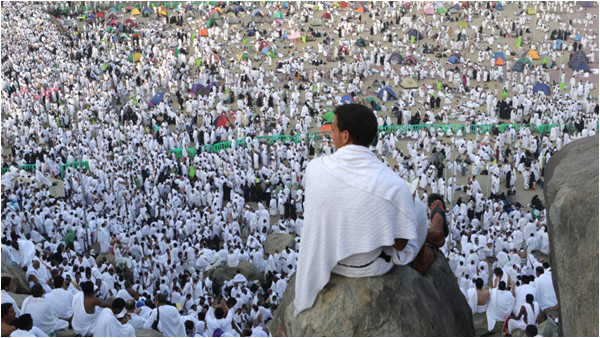
Unaffordable Hajj
Sir,
This annual Islamic pilgrimage is considered a mandatory religious duty for Muslims who must undertake it at least once in their lives, if they are financially and physically capable. However, the cost of Hajj packages has trebled, making this pilgrimage unaffordable for ordinary people. The five-star hotels surrounding the Kaaba are only affordable for the privileged class. The poor should be helped to with government assistance to undertake this pilgrimmage.
Hadia Aziz,
Islamabad
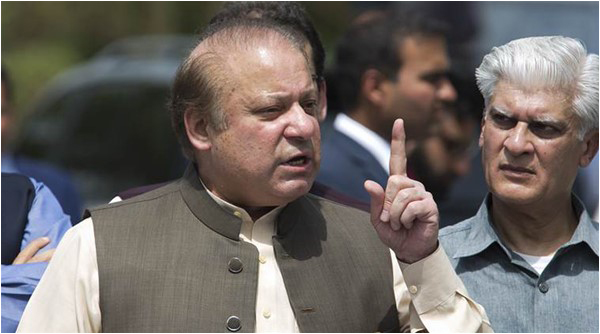
Current politics
Sir,
For very long the de facto rulers of Pakistan has been the military and the civilian government has been only effective in its given sphere of running the administration structures. The current PML-N government is trying to assert civilian supremacy over the military but is failing due to its own weaknesses.
The PML-N government lacks the credibility to turn the tables on the military, so to speak. In 2013 it had an opportunity to do so but failed miserably. No civilian government can do it on its own and needs to adopt a unified approach, encompassing all political forces, media and civil society.
In principle the civilian control of the military is a fundamental requirement of a democracy and constitutional system. However, given the myriad weaknesses of the civilian government the military has continuously encroached on civilian space. A reversal is possible, though but is not easy to accomplish at all. Pakistan’s democracy is now getting very problematic, to say the least.
Meanwhile, the performance of the PML-N is dismal at best. Pakistan’s democracy shouldn’t be just about government majority. There is system of checks and balances in which the judiciary checks the power of the executive.
Nawaz Sharif was ousted from power by the Supreme Court of Pakistan very recently in the famous Panama Papers trial but has become the head of his political party again. He is now desperately asserting his power unlike anything seen in Pakistan before. Nawaz Sharif is now challenging the authority of the army which controls real power in the country. The irony is that he lost the opportunity to do so. He could have put the army in its proper place as it has no role in politics whatsoever.
Nawaz Sharif lost that opportunity and now has lost credibility. It is now too little and too late, so to speak. Matters can go from bad to worse in Pakistan. God forbid, if there is a complete collapse of government, chaos and anarchy in Pakistan then the military will take over the country yet again.
Dr Sohail Mahmood, PhD
Via email.

